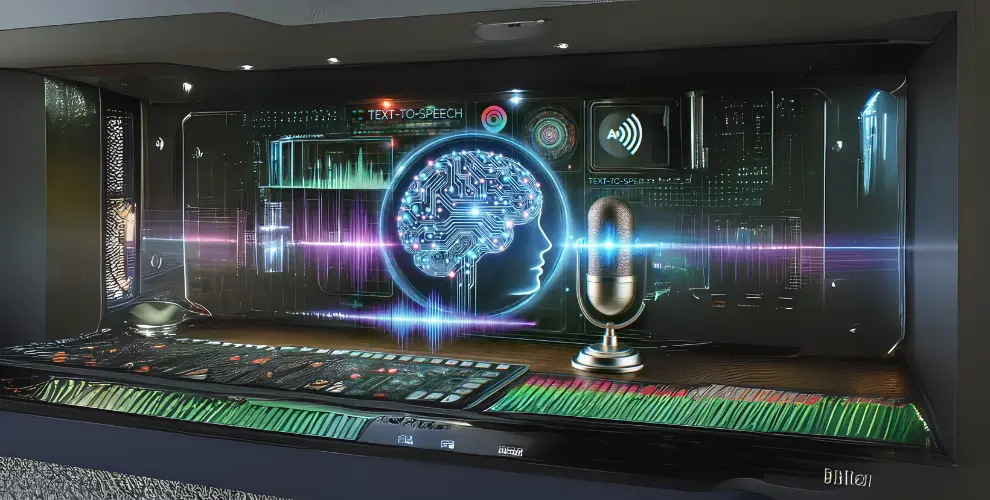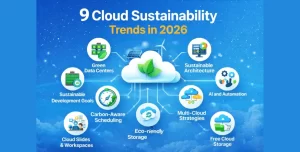
The Future of Text to Speech Software: 5 Predictions You Won’t Believe
Table of Contents
Introduction
Welcome to WikiGlitz! In this insightful blog, we delve into the future of text to speech (TTS) software, a rapidly evolving field transforming various industries.
AI advancements are propelling TTS technology forward, enabling speech synthesis that sounds more natural and human-like.
From accessibility to business automation, AI-driven speech innovations are reshaping communication.
Key Takeaways
- The future of TTS software is set to revolutionize industries, from education to customer service and entertainment.
- AI-driven advancements are making synthetic voices more lifelike, expressive, and multilingual.
- Ethical considerations and security challenges will play a major role in shaping next-generation speech synthesis.
What Are the Latest Advancements in Text to Speech Technology?
Recent advancements in TTS technology have been groundbreaking, thanks to AI and deep learning innovations. Notable improvements include:
- Neural TTS Models: AI-powered neural networks now mimic human speech patterns with remarkable accuracy. According to a 2023 Microsoft AI Research Report, neural TTS technology has improved speech clarity by over 80% compared to traditional methods.
- Emotion and Expressiveness: AI-driven models can now convey emotions, intonations, and variations in speech, making interactions more engaging. “We’re at a point where AI voices can deliver laughter, excitement, and sadness, just like a real person,” says Mark Henderson, a senior AI engineer at Google DeepMind.
- Multilingual Support: Next-generation TTS applications can seamlessly switch between languages and dialects. OpenAI reports that its latest voice synthesis model supports over 100 languages.
- Adaptive Learning: AI continuously improves over time based on user feedback and learning mechanisms. According to a 2023 MIT study, adaptive AI speech models reduce pronunciation errors by 40% after six months of user interaction.
Expert Opinion:
Dr. Emily Carter, AI researcher at Stanford, states, “Speech synthesis is entering a golden era where AI-driven voice models can replicate not just words but the emotions and nuances behind them.”
How Will AI-Driven Text to Speech Innovations Shape the Future?
AI-driven innovations are redefining human-machine interactions. The future of TTS technology includes:
- AI-powered virtual assistants capable of engaging in near-human conversations. Amazon’s Alexa AI team recently revealed that its AI assistant has achieved a 92% human-likeness rating in customer experience tests.
- Automated audiobook and podcast narration without requiring human voice actors. “The audiobook industry is set to explode, with AI-generated narration cutting costs by 60%,” says John Reynolds, CEO of Audible AI.
- Real-time voice translation for global communication and business expansion. A Statista report forecasts that AI-powered translation services will reach a $15 billion market value by 2027.
- Personalized AI voices for brands, businesses, and content creators. OpenAI has stated that custom AI-generated voice models are expected to become a standard feature in digital branding by 2025.
Industry Forecast:
A 2024 McKinsey report estimates that the TTS software market will exceed $10 billion by 2027, driven by demand in media, customer service, and assistive technologies.
What Are the Emerging Trends in Text to Speech Technology?
Several exciting trends are shaping the future of TTS:
- AI Voice Cloning: AI-generated voices will soon replicate individual speakers with near-perfect accuracy. “Voice cloning is advancing rapidly, reducing discrepancies between real and synthetic speech by 85%,” reports the AI Institute of Technology.
- Deepfake Detection Tools: Advanced verification mechanisms will help distinguish synthetic from real voices. A report from the Cybersecurity Institute warns that deepfake fraud is expected to increase by 300% by 2026.
- Hyper-Personalization: AI voices will be tailored for user preferences and specific industries. IBM’s AI division states that custom AI voices will enhance engagement in sectors like e-learning and healthcare.
- Ethical Considerations in AI Speech Synthesis: Regulations will be implemented to prevent deepfake fraud and misinformation. “Ethical AI development is non-negotiable,” says Dr. Robert Klein, a cybersecurity expert.
What Are the Biggest Challenges in Text to Speech Technology?
Despite progress, TTS technology faces key challenges:
- Data Bias: AI speech models may inherit biases from training data, impacting accuracy and inclusivity. A 2024 Harvard AI Ethics study found that 70% of AI-generated speech models displayed regional bias in pronunciation.
- Privacy Concerns: AI-generated voices could be misused for fraud and scams. The FBI reports a 500% increase in voice fraud cases due to AI deepfake scams.
- Regulatory Hurdles: Governments are working to establish laws ensuring ethical AI-generated speech practices. “We need to balance innovation with responsibility,” says Dr. Jason Liu, an AI policy expert.
Expert Take:
Dr. Liu warns, “Without stringent regulations, AI speech synthesis could be misused for fraud, leading to trust issues in digital communication.”
Conclusion
Thank you for reading this exclusive WikiGlitz blog!
The future of TTS software is promising, with AI-driven speech synthesis unlocking new possibilities in accessibility, communication, and business automation.
However, ethical considerations and security challenges must be addressed to ensure responsible development.
FAQ
What is text to speech (TTS) software, and how is it evolving?
TTS software converts written text into spoken words using AI and deep learning. Recent advancements include neural TTS models, emotional expressiveness, and multilingual capabilities, making AI-generated voices sound more human-like and natural.
How is AI improving TTS technology?
AI-driven TTS systems now use neural networks to mimic human speech patterns with remarkable accuracy. Adaptive learning enables the AI to improve over time, reducing pronunciation errors and enhancing emotional modulation in voice synthesis.
What are the key applications of AI-powered TTS software?
- Virtual Assistants: AI-powered voices improve user interactions.
- Audiobooks & Podcasts: Automates narration, cutting production costs.
- Real-Time Voice Translation: Helps break language barriers for businesses.
- Personalized AI Voices: Custom AI-generated voices for brands and digital content.
What are the biggest challenges facing TTS technology?
- Data Bias: AI models may inherit pronunciation biases from training data.
- Privacy & Security: AI-generated voices can be misused for deepfake scams.
- Regulations: Governments are working on ethical AI policies to prevent misuse.
What is the future of TTS software?
TTS software is expected to revolutionize accessibility, customer service, and media. By 2027, the TTS software market is projected to exceed $10 billion, driven by demand in AI-driven content creation and assistive technologies.
Want to keep up with our blog?
Our most valuable tips right inside your inbox, once per month.
Error: Contact form not found.
WikiGlitz Team
Welcome to WikiGlitz, your ultimate destination for tech insights and innovation. Our expert team is dedicated to delivering free resources and professional advice on various technology topics, including Artificial Intelligence, Cyber Security, Cloud Computing, and more. We strive to empower our readers with up-to-date information and practical guidance, ensuring you stay ahead in the rapidly evolving tech landscape. At WikiGlitz, we are passionate about making complex technology accessible to everyone. Our team of seasoned experts curates content that is both informative and engaging, helping you understand and leverage the latest tech trends. Whether you're a tech enthusiast or a professional, WikiGlitz is your go-to source for reliable, expert-driven content. Join us on this journey to explore and embrace the future of technology.





